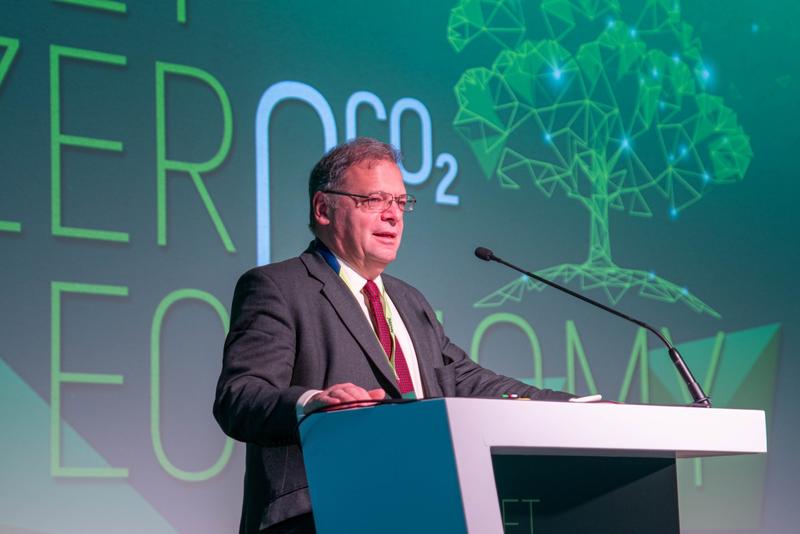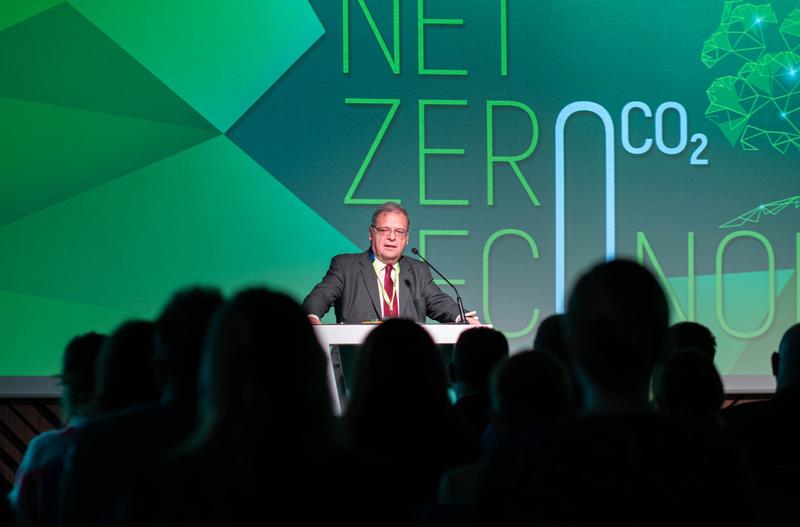Minister Popov: Carbon is the new currency that is beginning to dictate the world economy
23 Nov, 2023 | 14:25"Carbon is the new currency that is beginning to dictate the world economy," said the Minister of Environment and Water Julian Popov in his opening speech on the second day of the Net Zero Economy conference organized by Capital.
Minister Popov noted that the world is on the threshold of a new industrial revolution, which is related to carbon emissions and efforts to reduce those in implementation of the Paris Agreement goals. The goal is to limit the global temperature rise to more than 1.5 degrees Celsius. "Regardless of arguments about climate change, the Paris Agreement and subsequent agreements are a fact, and when we say 1.5 degrees, that doesn't mean conference speeches or turning off the heat. It means concrete new policies that work towards the goal of carbon neutrality," he highlighted. Minister Popov reminded that the EU is committed to carbon neutrality by 2050, as is the US, Japan, South Korea, and others. China, the world's largest emitter, has committed to 2060 and Idnia, the world's most populous country, has committed to 2070.
Minister Popov said these goals are being pursued with extraordinary ambition and intensity and are already attracting attention and sparking incredible competition around the world.
In his words, if at COP15 in 2009 in Copenhagen the issue of limiting the temperature rise to 1.5 degrees or 2 degrees sounded fantastic and then governments and the NGO sector were the main drivers of change, now governments are even a deterrent. "The driving force is the business, precisely because of this huge competition that has emerged around the world. This competition is the result of monetizing the right to emit carbon dioxide and other greenhouse gases. Carbon has acquired a price tag and has become a new currency that is increasingly beginning to dictate the world economy," explained Minister Popov.
He said this was neither imposed, nor "invented" by Brussels, as many claim, because there is not only a European market for carbon allowances, but 50 others around the world. So globally, despite some sceptics and critics of the green transition, the world has reached a consensus on where it is headed - namely towards a zero-emissions economy. It is very important for the Bulgarian society, state, and business to move in this direction and to focus on it," said Minister Popov with conviction.
"Bulgaria will for the first time have a very strong participation in the global climate meeting COP28 in Dubai, which starts in a week," said the minister. He noted that usually only a few representatives from our country take part, whereas this time there will be at least 200. "They are mostly business people, CEOs of some of the biggest Bulgarian companies. This is a sign of what the possibilities of the 'net-zero economy' are," the environment minister stressed.
Minister Popov noted that it is important for our country to concentrate its efforts in two areas of the green transition and climate change mitigation policies. One is emissions reduction- this is mainly the renewable energy industry. He expects to see more investment in wind power soon to better balance the mix, which is now heavily dominated by solar.
This area also includes energy efficiency - still a problem for Bulgaria, but also a big opportunity for the business, and hydrogen storage. Minister Popov stressed that our country has a strong capacity and potential to participate in carbon credit schemes through forest management - this is a new market that is growing dynamically and is expected to increase in the coming years.
According to him, alongside the activities aimed at limiting emissions, there is another segment in which Bulgaria has a lot of potential to develop, and that is all industries that serve the reduction of emissions: cables, solar panels, batteries, components for wind turbines, etc. This is a spectacular industry that is currently led by China, but it holds huge opportunities for the business.

